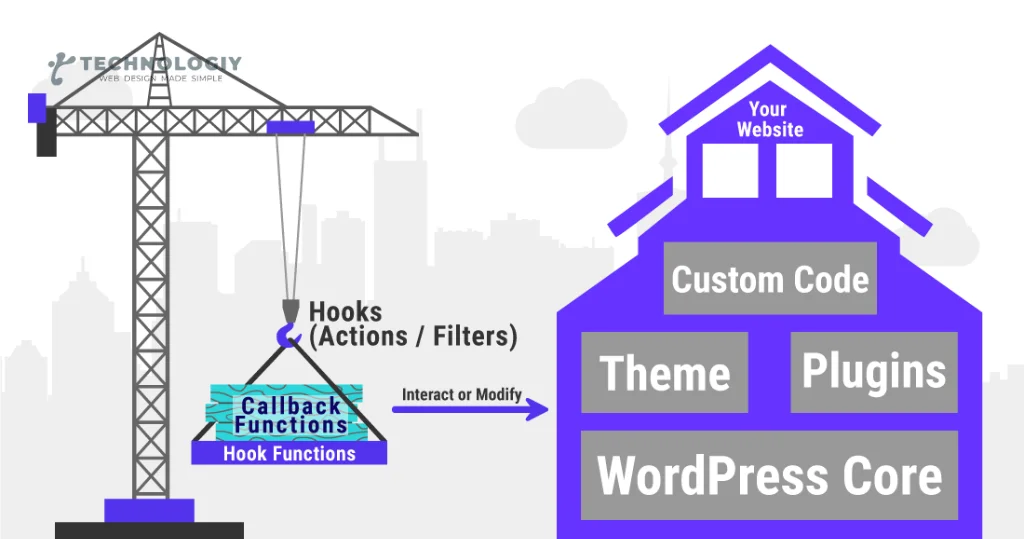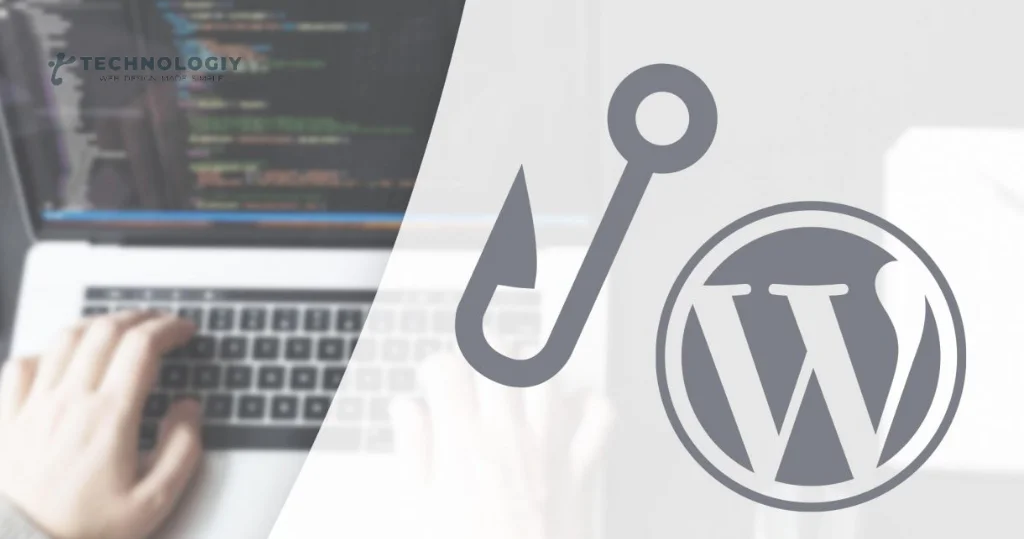Unleashing the Power of WordPress Plugin Hooks: A Beginner’s Guide. Are you a devoted fan of WordPress eager to elevate your website to new heights? Well, you’re in luck! In this beginner’s guide, we’ll be diving deep into the world of WordPress plugin hooks and how they can help you unleash the true power of your website. Feel free to seize a mug of your favorite coffee, settle in, and let’s commence!
What are WordPress Plugin Hooks?
Before we plunge into the intricate specifics, let’s begin with the fundamental groundwork. WordPress plugin hooks are a way for developers to extend the functionality of WordPress without modifying the core code. These hooks allow you to add, modify, or remove features from your website, making it more customizable and efficient.
There are two primary types of hooks:
actions and filters. Actions are hooks that allow you to add custom code at specific points in the WordPress lifecycle, such as when a post is published or a user logs in. On the other hand, filters allow you to modify the data that is being processed before it is displayed on your website.
Why Should You Care?
Now you might be wondering, why should I care about WordPress plugin hooks? Well, let’s take a closer look at the benefits they offer:
Flexibility and Customization:
Plugin hooks give you the ability to tailor your website to your specific needs. You can add new features, modify existing ones, or remove functionalities that don’t align with your goals.
Code Separation:
By utilizing hooks, you can keep your custom code separate from the WordPress core. This makes it easier to update your website without the fear of losing your modifications.
Community Support:
WordPress has a vast community of developers who create and maintain plugins. By using hooks, you can tap into this community and extend the functionalities of existing plugins or create your own.
Getting Started with WordPress Plugin Hooks:
Now that you understand the benefits, let’s dive into how you can get started with WordPress plugin hooks:
Find the Right Hook:
Start by identifying the specific action or filter you want to hook into. WordPress provides a comprehensive list of hooks in their documentation, so make sure to explore it.
Create Your Custom Function:
Once you’ve identified the hook, it’s time to create your custom function. This function will contain the code you want to execute when the hook is triggered.
Hook it Up:
Now it’s time to hook your custom function into the WordPress lifecycle. You can do this using the add_action or add_filter functions in your theme’s functions.php file or in a custom plugin.
Test and Iterate:
Don’t be afraid to experiment! Test your custom code and iterate as needed. WordPress plugin hooks offer endless possibilities, so feel free to explore and fine-tune your website to perfection.
You’ve just scratched the surface of the powerful world of WordPress plugin hooks. By leveraging these hooks, you can unlock a whole new level of customization and efficiency for your website. Feel free to dive in, explore, and unleash your imaginative spark. The possibilities are endless!
Remember, WordPress plugin hooks are your secret weapon in taking your website to the next level. Embrace them, utilize them, and watch your website transform before your eyes. Happy coding!
Unlock Website Excellence with WordPress Plugin Hooks Introduction:

Welcome to our blog, where we explore the fascinating world of WordPress and its powerful features! Today, we want to dive into the topic of WordPress Plugin Hooks and how they can optimize your website’s performance. Whether you’re a seasoned WordPress user or a beginner, understanding and leveraging these hooks can take your website to new heights.
What Are WordPress Plugin Hooks?
WordPress Plugin Hooks are a set of functions that allow developers to modify, enhance, or add new functionalities to a WordPress website. Hooks act as connection points that enable developers to interact with different parts of the WordPress core, themes, and plugins. By using hooks, developers can seamlessly integrate their code into specific areas of a website, without the need to modify the original source files.
Why Should You Care About WordPress Plugin Hooks?
WordPress Plugin Hooks offer a myriad of benefits that can significantly improve your website’s performance and functionality. Let’s explore a few key reasons why you should consider leveraging hooks:
Flexibility and Customization:
Hooks empower you to tailor your website exactly to your needs. Whether you want to modify the appearance of a specific page, add new functionalities, or even extend the capabilities of a plugin, hooks provide the flexibility to do so without modifying the original codebase.
Future-Proofing:
WordPress frequently releases updates, and themes or plugins may change over time. By utilizing hooks, you can make changes and enhancements without worrying about losing your modifications during updates. The hooks act as a bridge between your custom code and the core files, ensuring your changes persist.
Improved Performance:
With hooks, you can optimize your website’s performance by selectively loading only the necessary code when required. This results in faster page load times and better overall user experience.
Collaboration and Compatibility:
Hooks facilitate collaboration among developers by allowing them to create plugins that integrate seamlessly with other plugins or themes. This compatibility ensures a smooth functioning website without conflicts or errors.
How to Use WordPress Plugin Hooks:
Now that we’ve established the importance of WordPress Plugin Hooks, let’s dive into how you can use them to optimize your website.
Identify the Appropriate Hook:
WordPress provides a wide range of hooks that cover various aspects of your website. Whether you want to modify the header, footer, sidebar, or any other element, there is likely a hook available for you. Consult the WordPress documentation or seek guidance from your developer to find the suitable hook for your customization needs.
Add Your Custom Code:
Once you’ve identified the hook, it’s time to add your custom code. This can be achieved through a child theme’s functions.php file or a custom plugin. Insert your code within the designated hook, ensuring it fulfills your desired customization.
Test and Refine:
After adding your custom code, it’s crucial to thoroughly test your website to ensure everything functions as intended. Make any necessary adjustments or refinements until you achieve the desired outcome.
WordPress Plugin Hooks unlock a world of possibilities for website owners and developers alike. By utilizing hooks, you can customize and enhance your website, improve performance, and future-proof your modifications. Embrace the power of WordPress Plugin Hooks and witness the transformation of your website into a truly optimized and tailored online presence.
Remember, WordPress Plugin Hooks are your secret weapon to a more powerful and efficient website. Start exploring and experimenting with hooks today, and witness the magic unfold!
Supercharge Your WordPress Plugins with Hooks:

Tips and Tricks for SuccessAre you a WordPress developer looking to take your plugins to the next level? Look no further! In this blog post, we will explore the powerful world of WordPress plugin hooks and share some valuable tips and tricks to help you succeed. Whether you’re a beginner or an experienced developer, this guide will provide you with the knowledge and tools to supercharge your WordPress plugins!
What are WordPress Plugin Hooks?
WordPress plugin hooks are an essential part of WordPress development. They allow you to “hook” into different parts of the WordPress core code and extend its functionality. By using hooks, you can modify or add new features to existing WordPress functions without modifying the core code directly. This gives you the flexibility to customize and enhance the functionality of your plugins without worrying about breaking anything.
Action hooks allow you to execute your code at specific points in the WordPress execution process, while filter hooks allow you to modify the data before it is displayed. Understanding the difference between these two types of hooks is crucial for leveraging their full potential.
Tips for Using WordPress Plugin Hooks:
Choose the Right Hook:
When using hooks, it’s important to choose the appropriate hook for the task at hand. WordPress provides a vast array of hooks, so take the time to research and understand which hook will best serve your needs. Remember, using the wrong hook can lead to unexpected results or conflicts with other plugins.
Prioritize Efficiency:
Hooks can be powerful, but they can also impact performance if not used efficiently. Avoid excessive hook usage or unnecessary code execution. Always strive for lean and optimized code to ensure your plugins work smoothly and don’t slow down your website.
Understand the Hook Execution Order:
Hooks are executed in a specific order, and understanding this order is crucial for achieving the desired functionality. WordPress follows a “first come, first served” principle, meaning that hooks registered earlier will be executed before those registered later. Make sure you’re aware of the execution order and plan accordingly.
Document Your Hooks:
When developing plugins, it’s essential to document your hooks thoroughly. This will not only help you remember their purpose but also assist other developers who might use or contribute to your plugin. Clear and concise documentation is key to building a successful plugin that others can easily understand and collaborate on.
Stay Up-to-Date:
WordPress is an ever-evolving platform, and hooks can change or be deprecated over time. Stay updated with the latest WordPress releases and changes to ensure your plugins remain compatible and functional. Regularly check the WordPress developer documentation and community forums for any updates or changes related to hooks.
Conclusion
WordPress plugin hooks are a powerful tool that can elevate your plugin development skills to new heights. By utilizing the right hooks and following best practices, you can create highly customizable and efficient plugins that enhance the functionality of any WordPress website. So, what are you waiting for? Dive into the world of WordPress plugin hooks and supercharge your plugins today!
Remember, success with WordPress plugin hooks comes with practice and experimentation. Don’t be afraid to try new things, learn from your mistakes, and keep refining your skills. Happy coding!
